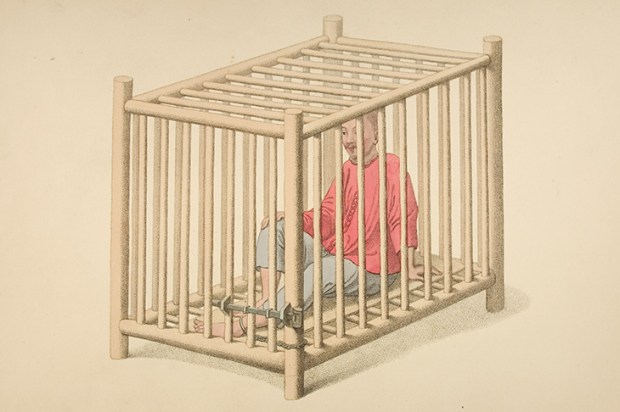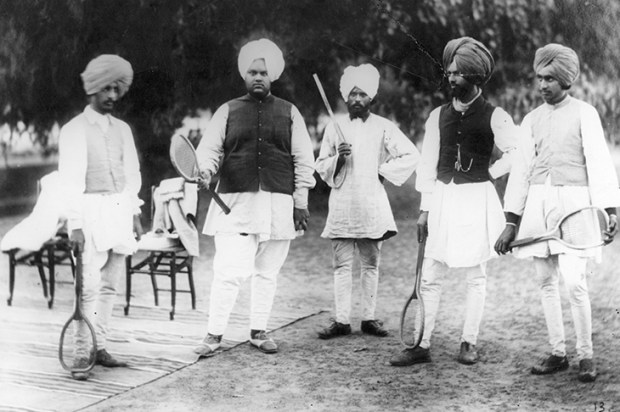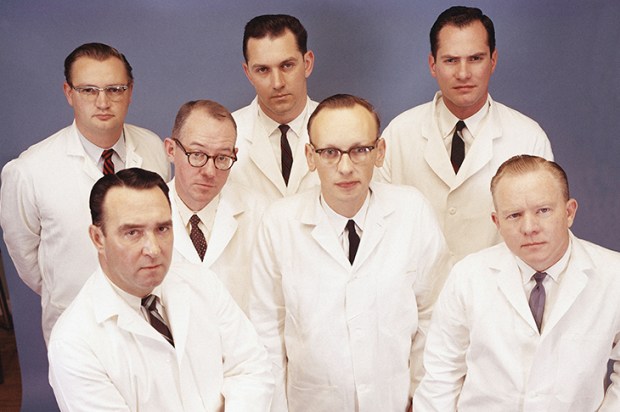This is an appeal to Speccie readers to join a modest campaign to ban the use of ‘begs the question’. Why? Because no one uses this correctly. Ever. No one (it seems) understands what it means. ‘Begs the question’ is the name of the logical fallacy of assuming the conclusion of your argument is true in one or more of the statements you start with. In other words, a circular argument. It amounts to saying, ‘P is true, therefore P’. In Anthony Flew’s old Dictionary of Philosophy (published by Pan Books way back in 1979) the definition of ‘begging the question’ is, ‘The procedure of taking for granted, in a statement or argument, precisely what is in dispute’. Philosophers have a technical name for this: petitio principii – which is just Latin for ‘begging’. So, it means an argument that ‘begs’ (pleads) to be believed rather than offers proper reasons to be believed. But that’s not how anyone uses it, is it? Instead, people use it to mean ‘raises the question’ or sometimes ‘avoids the question’. Imagine a politician giving a partial answer to a question but leaving out a major point. The interviewer wants to say, ‘But that still avoids the question…’ instead of which they say, ‘But that still begs the question….’ Wrong! Sometimes an answer gives rise to a further problem, in which case someone will say, ‘But that raises the question of…’ instead of which they say, ‘But that then begs the question of….’ Again – wrong! If they want to say, ‘raises the question’ or, ‘avoids the question’ they should just say, ‘raises…’ or ‘avoids the question’. But they don’t. So, let’s encourage those around us to drop the expression ‘begs the question’.
It’s great a find a precise word that names the pathetic nature of much political discourse today. One such word is ‘battological’. This means: ‘a needless and tiresome repetition in speaking or writing’ (Oxford English Dictionary). The word has turned up (only occasionally, it’s true) in the English language since the 1600s. It comes from a group of words in ancient Greek, where ‘battologia’ means ‘vain repetition’. Behind this seems to be another old Greek word ‘battologos’ – literally ‘a stammerer’ – and from that came to mean ‘one who repeats himself needlessly’. If focus groups persuade the government the biggest concern voters have is ‘cost of living’ the response is to use the phrase ‘cost of living’ over and over again. Not, you understand, to actually do anything about the cost of living, just to keep using the phrase. The notion (I suppose) is that if we keep hearing it we will believe they are doing something about it. This is the art of political speech today. If the green-left wants us to believe that ‘renewables are the cheapest form of power’ they won’t produce a spreadsheet – they’ll keep saying those words over and over. And now we have the name for their technique: ‘battological’.
The judge in Trump’s New York trial, in his summing-up, trotted out the word ‘eleemosynary’ (ell-ee-MOH-sun-ree). Judge Juan Merchan joked that he tried to pronounce it several times but could not and so spelled it for the court reporter. He also said it means ‘charitable’. Apparently this obscure word has turned up in trials before. Judge Merchan said he’s had to say the word a hundred times over the years, but still can’t get it right. Everyone involved agreed on striking it from the transcript. Why the issue of charitable payments came up in the trial I don’t know (was the defence saying that Trump’s payment to Stormy Daniels was ‘charitable’?) ‘Eleemosynary’ comes from a medieval Latin source word, which in turn is related to the word ‘alms’. We know that ‘alms’ refers to charitable giving, and somewhere behind ‘alms’ is an ancient Greek word eleein meaning ‘to have compassion, or pity, or mercy’. And you can see the influence of that ancient Greek word behind ‘eleemosynary’. This is about the time of the year when the Salvation Army runs its annual Red Shield Appeal. So, if you give money to the good old Sallies for the Red Shield Appeal, then your gift could be described as ‘eleemosynary’.
Got something to add? Join the discussion and comment below.
Contact Kel at Ozwords.com.au
You might disagree with half of it, but you’ll enjoy reading all of it. Try your first month for free, then just $2 a week for the remainder of your first year.













